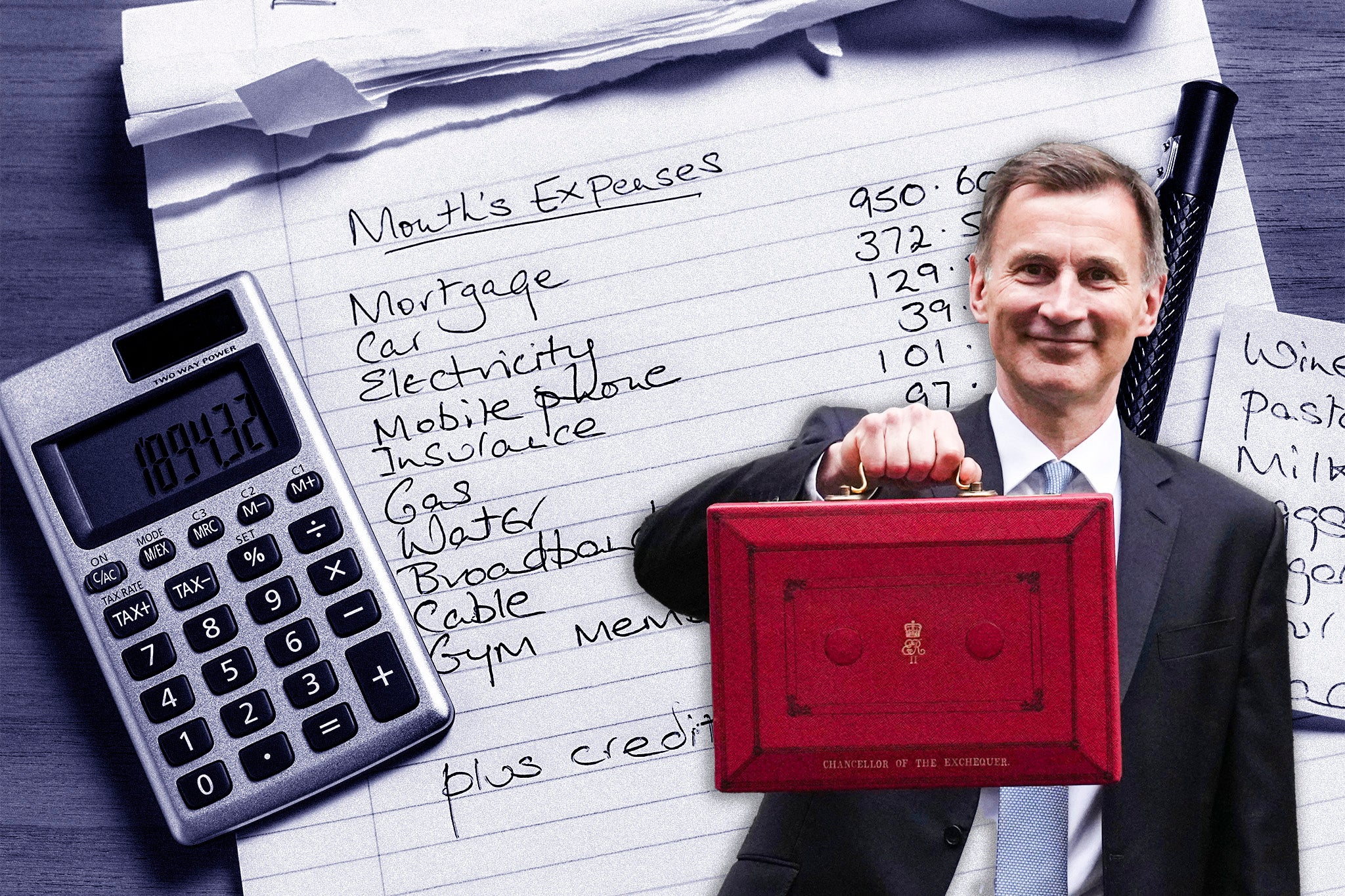How much money would you save with Jeremy Hunt’s 2p National Insurance cut?
The biggest net beneficiaries of a 2p cut in national insurance from Wednesday’s Budget would be those workers earning £45,000 or more
Jeremy Hunt has unveiled a 2p cut to national insurance in his Budget on Wednesday as he attempts to attract voters ahead of this year’s general election.
The chancellor announced his second reduction in employment taxes in a year, after cutting national insurance by 2p in last year’s autumn statement.
Mr Hunt will hope another cut to national insurance, as opposed to the more expensive option of a 2p reduction in income tax, will close the opinion poll deficit with Labour which is currently on course to win at the election.
It’s been reported that the move will save the average earner £450 a year.
Follow our live blog on Wednesday’s budget for news on all the announced measures by clicking here

Combined with freezes in the thresholds at which national insurance is paid, the biggest net beneficiaries will be those earning £50,000.
However, the expected fall in national insurance - which is used by the government to fund benefits including the state pension - has been met by surprise by polling expert professor Sir John Curtice, who believes public services are a bigger priority for voters.
How much would you save with a 2p national insurance, based on an annual income
£15,000 - Take-home pay of £14,320 in 2024/25, compared to £14,235 in 23/24 - Increase of £85
£20,000 - Take-home pay of £17,920 in 2024/25, compared to £17,660 in 23/24 - Increase of £260
£25,000 - Take-home pay of £21,520 in 2024/25, compared to £21,085 in 23/24 - Increase of £435
£30,000 - Take-home pay of £25,120 in 2024/25, compared to £24,510 in 23/24 - Increase of £610
£35,000 - Take-home pay of £28,720 in 2024/25, compared to £27,935 in 23/24 - Increase of £785
£40,000 - Take-home pay of £32,320 in 2024/25, compared to £31,360 in 23/24 - Increase of £960
£45,000 - Take-home pay of £35,920 in 2024/25, compared to £34,786 in 23/24 - Increase of £1,135
£50,000 - Take-home pay of £39,520 in 2024/25, compared to £38,210 in 23/24 - Increase of £1,310
£55,000 - Take-home pay of £42,457 in 2024/25, compared to £41,138 in 23/24 - Increase of £1,320
£60,000 - Take-home pay of £45,357 in 2024/25, compared to £44,038 in 23/24 - Increase of £1,320
£65,000 - Take-home pay of £48,257 in 2024/25, compared to £46,938 in 23/24 - Increase of £1,320
£70,000 - Take-home pay of £51,157 in 2024/25, compared to £49,838 in 23/24 - Increase of £1,320
Join our commenting forum
Join thought-provoking conversations, follow other Independent readers and see their replies
Comments
Bookmark popover
Removed from bookmarks